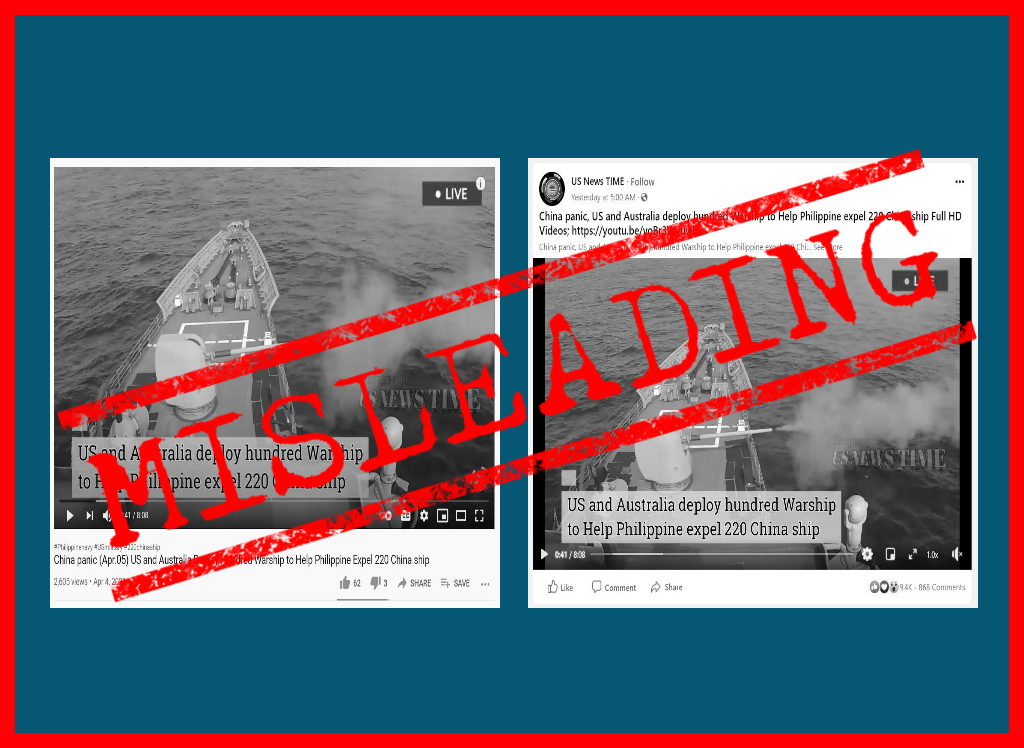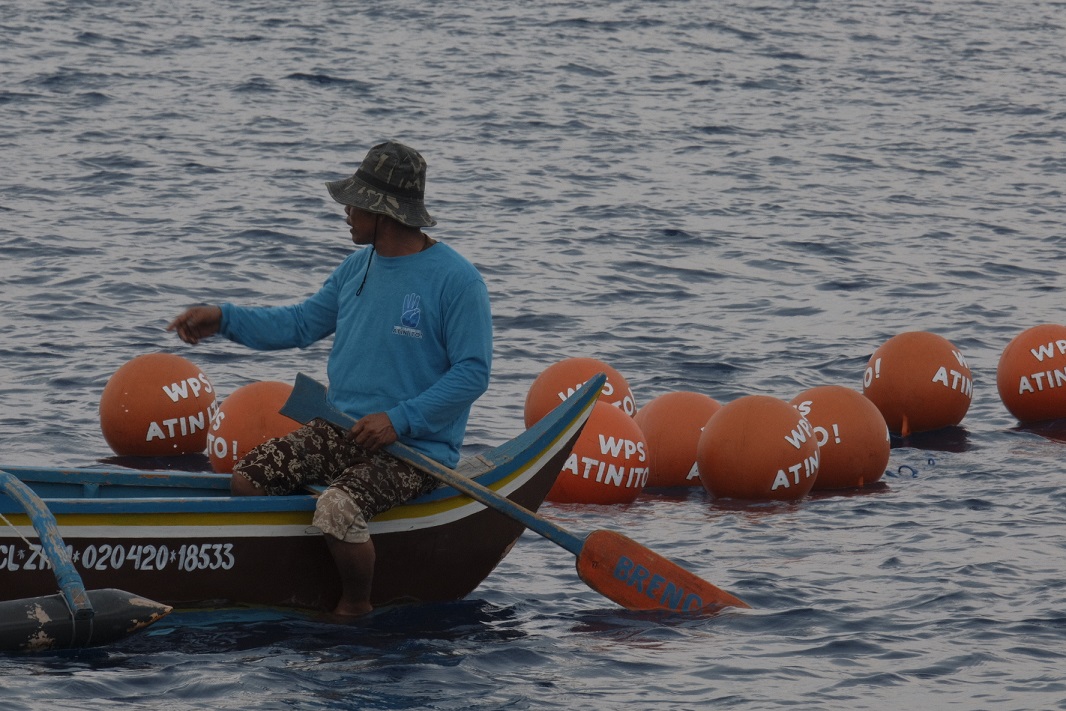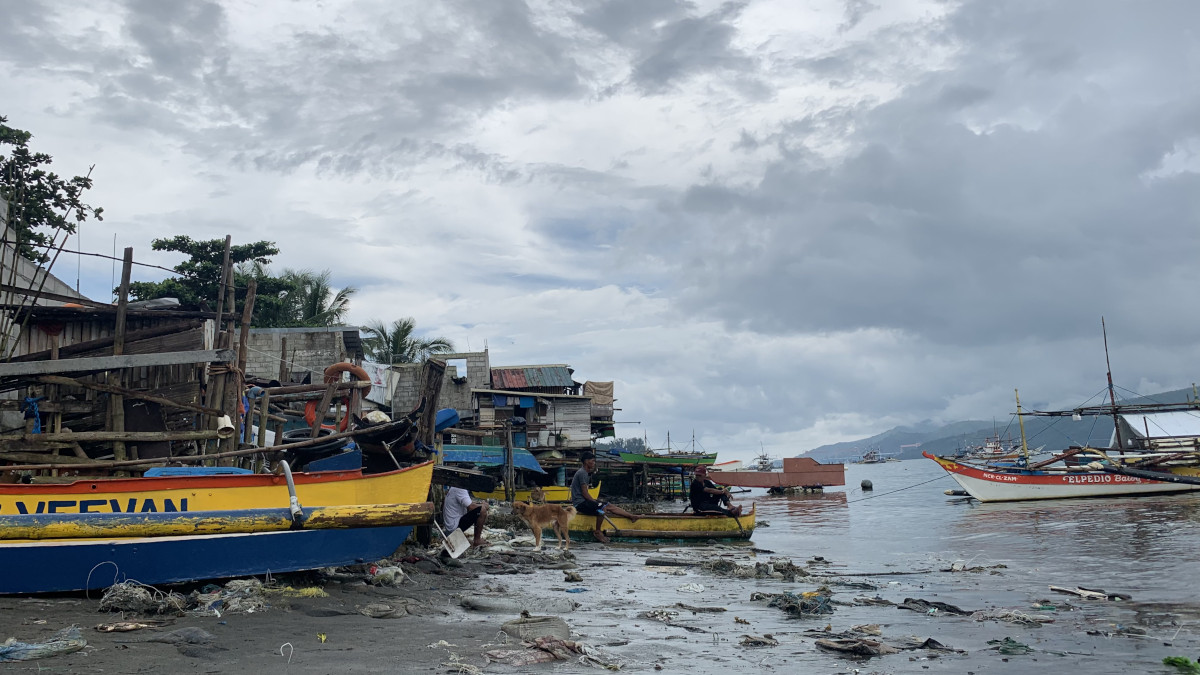
SUBIC, Zambales – Fishermen hauling their big boats or preparing for fishing expeditions were a usual sight in Barangay Calapandayan here. But China’s aggression in the vicinity of the West Philippine Sea has resulted in a noticeable change: fewer big boats and less busy.
Ian Jasper Tabios, 40, a fisherman since he was a teenager, is witnessing the worsening situation. He said many of his colleagues have sold their big boats and found other sources of livelihood after experiencing various forms of harassment from the Chinese coast guards in Scarborough Shoal.
“Noong 2007 to 2009, kahigpitan talaga ‘yun. Talagang hinahabol kami nu’n. ‘Yung ibang mga kasamahan naming mangingisda, minsan, wina-water cannon pa para maitaboy. Araw-araw kasi sila nagsa-survey doon noon, pero ngayon may dalawang barko na lang na palaging nagbabantay sa may bukana,” said Tabios.
(From 2007 to 2009, that was really tough. They were chasing us. They even use water cannons to drive away our fellow fishermen. Because they used to survey the area every day, but now only two ships are regularly guarding the entrance [to the lagoon].)
“Kaya ngayon, pag nalalaman namin na may mga hina-harass, sanay na kami, kasi ganun naman palagi ang nangyayari du’n, hindi na naiba,” Tabios added.
(So now, when we learn that some people are being harassed, we’ve grown used to it, because that’s been usually happening there, it’s no different.)
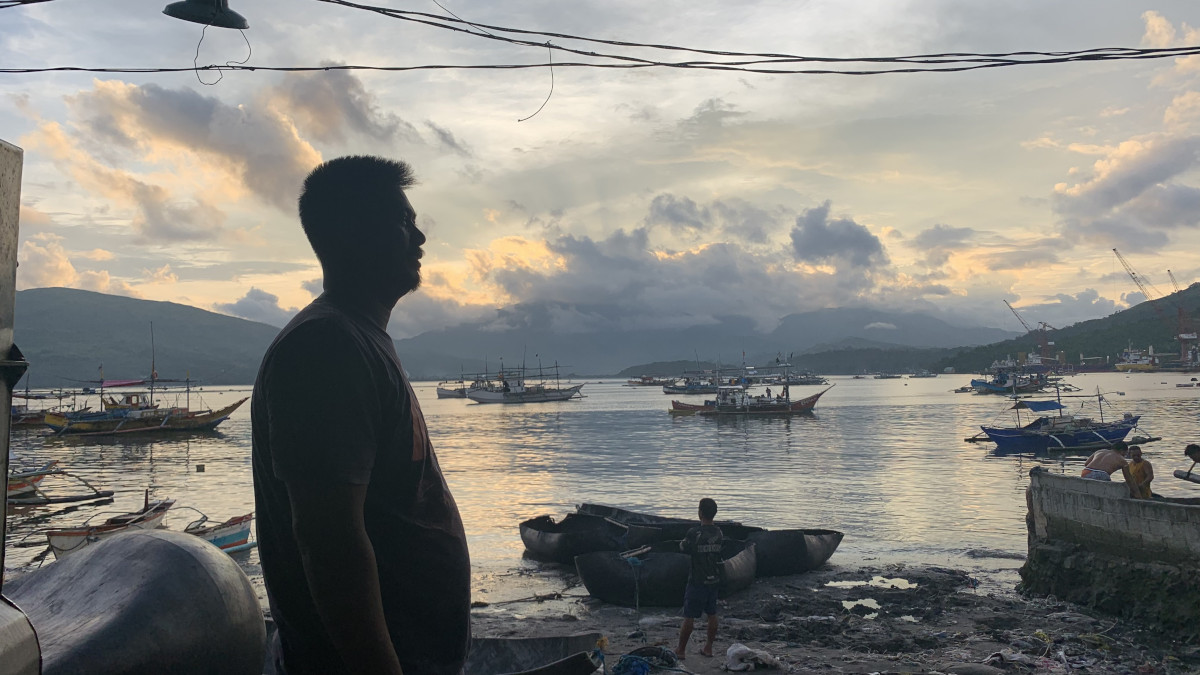
Fishermen from this town, like Tabios, need to travel 24 to 28 hours, or more than a day to reach the shoal. They spend at least P300,000 for their food, gas, and other provisions for each fishing trip.
Scarborough Shoal, known as Panatag Shoal or Bajo de Masinloc, is located within the country’s 370-kilometer (200 nautical miles) exclusive economic zone (EEZ) in the South China Sea (SCS). The Philippines refers to the waters within its EEZ as the West Philippine Sea (WPS). The shoal, also commonly called as Kalburo by locals, has bountiful fish stocks and a lagoon that provides a haven for vessels during storms.
For decades, it became a traditional fishing ground for many fishermen in Zambales and nearby provinces, such as Bataan and Pangasinan. But China, which has a sweeping claim of nearly the entire South China Sea, has been harassing fishermen and other vessels attempting to enter the lagoon.
In July 2016, the Netherlands-based arbitral tribunal adjudicating the Philippines’ case against China in the SCS ruled that China’s claim of historic rights to resources within its so-called nine-dash line had no basis in law as it upheld the Philippines’ sovereign rights and jurisdiction in its EEZ. Other countries like Vietnam and Malaysia recognized the EEZ of the Philippines in the South China Sea, but China refused to recognize the ruling.
Chinese destruction
Tabios recalled the times when they could freely enter the lagoon. During those days, he recalled, they could catch enough and go back home to their families within four days. But nowadays, their fish catch is fewer even if they spend two weeks near the shoal.
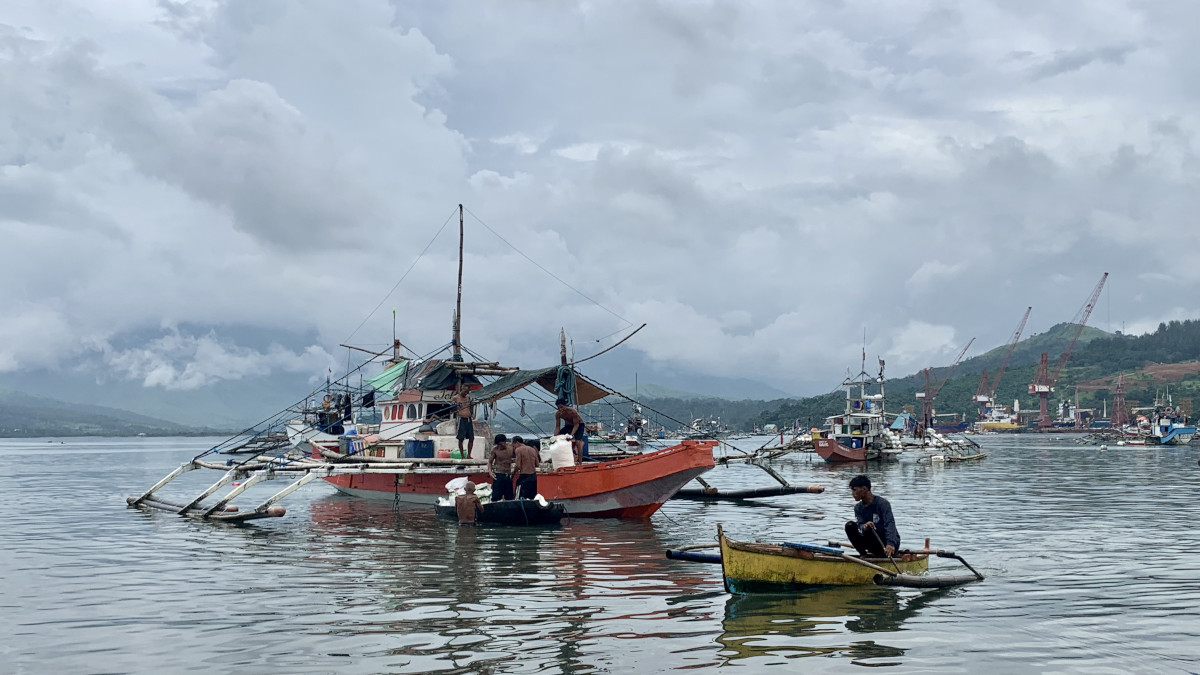
The West Philippine Sea is composed of coral reefs and is considered as one of the most productive marine ecosystems, but due to reported dredging activities by the Chinese in the area in the past years, fishermen have observed massive destruction to their traditional fishing ground.
“Ang Scarborough napakaganda ng corals niyan dati, pero nu’ng pinasok na ng China ‘yan, wala na. Nakikita namin na durog na. Wala nang corals na matino, kahit ‘yung mga umuusbong palang sana, nasisira na agad. Malaki ang epekto nu’n sa huli dahil ‘yun ang bahay ng mga isda. May isda man sa Scarborough malalim na, wala na sa bandang ibabaw,” said Tabios.
(Scarborough had very beautiful corals, but when China entered it, it was gone. We see that it has been crushed. There are no more good corals, even those that are just sprouting are destroyed immediately. It has a big impact on our catch because that is the home of the fish. There are still fishes in Scarborough but they’re in the deep, no more on the surface.)
“Hinuhukay kasi nila [Chinese] ang mga bahura hanggang makakita sila ng mga giant clam. Meron silang mga maliliit na bangka na may mahabang shafting, tapos propeller ang ginagamit nilang panghukay,” said Tabios.
(The Chinese dig the coral reefs until they find giant clams. They have small boats with long shafting, and then they use propellers to dig.)
Aside from reef destruction in the WPS, the National Task Force for the WPS (NTF-WPS) reported in 2021 that as much as 240,000 kilograms or more than 260 tons of fish are taken illegally every day by Chinese fishing vessels.
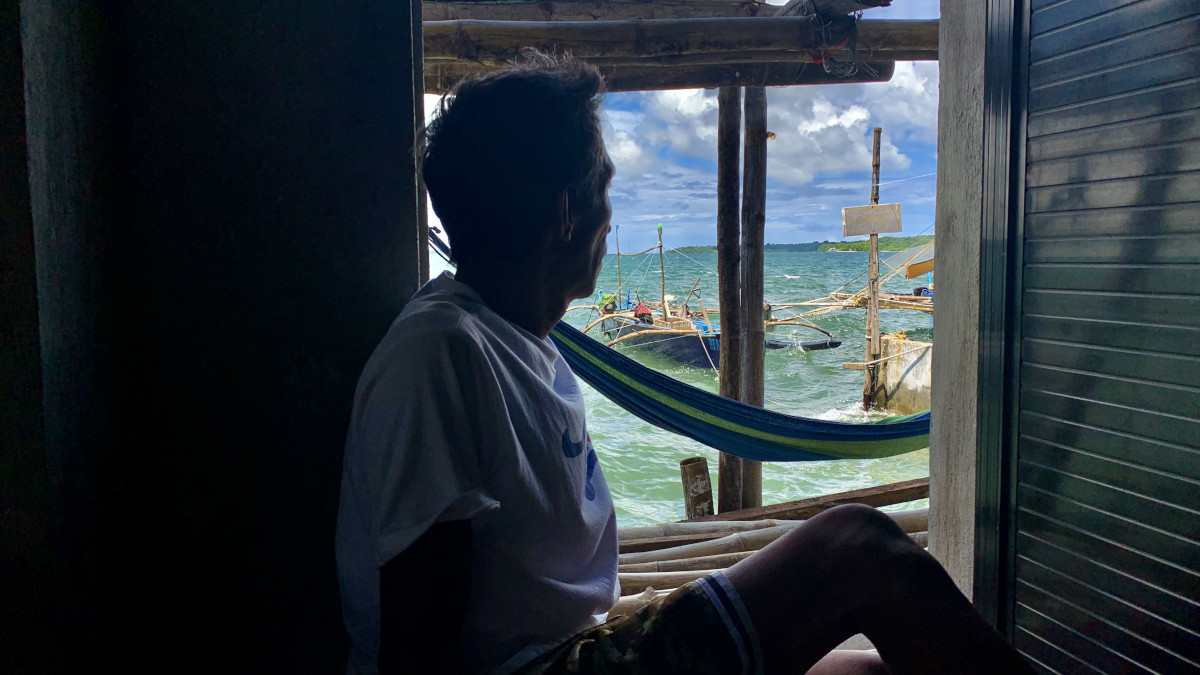
In Masinloc town, also in this province, the depletion of fish catch is felt even in the municipal waters, as most of the fishermen living in the area have deserted Scarborough Shoal.
A study by the United States Agency for International Development (USAID), through its Sustainable Interventions for Biodiversity, Ocean and Landscapes (Sibol) project, showed that a relatively lower catch per unit effort of fishing gear in Masinloc and nearby Palauig town indicates that the ecosystem has less fish to provide.
While both the Philippines and Chinese governments fight for control over the WPS, it is evident that small-scale fishermen continue to suffer with the consequences of the destruction, such as habitat loss and overexploitation of the natural resources within the country’s territory.
Alternative livelihood
Due to economic loss, a group of small-scale fishermen are trying some alternative livelihoods to support their families while conserving their traditional fishing grounds.
Leonardo Cuaresma, president of the New Masinloc Fishermen Association (NMFA) said they have built a smokehouse to preserve and add value to their fish production.
“Para kahit walang huli, may maaasahan ang mga katulad naming mangingisda at mabebenta pa namin ‘yun [sa] mas mahal na halaga,” said Cuaresma.
(So that even if there is no catch, fishermen like us can count on something and we can sell it at a higher price.)
“Sana lang mabigyan din kami ng suporta ng pamahalaan para maipagpatuloy namin ang aming hanapbuhay na talagang naaapektuhan dahil sa nangyayari sa Panatag,” Cuaresma added.
(I just hope that the government will also give us support so that we can continue our work that is affected by what is happening in Scarborough Shoal.)
For Tabios and Cuaresma, and thousands of other fishermen in this province, the WPS dispute is not just about fighting for our territorial rights but also fighting for their livelihood. And they keep calling on the government to protect and defend their fishing rights.
(This special report was produced under VERA Files’ project on enhancing the media’s capability to raise public awareness of the situation in the South China Sea, funded by the Government of Canada through its Canada Fund for Local Initiatives. #CanadaFundPH
Joanna Rose Aglibot is a news correspondent of the Philippine Daily Inquirer.)
